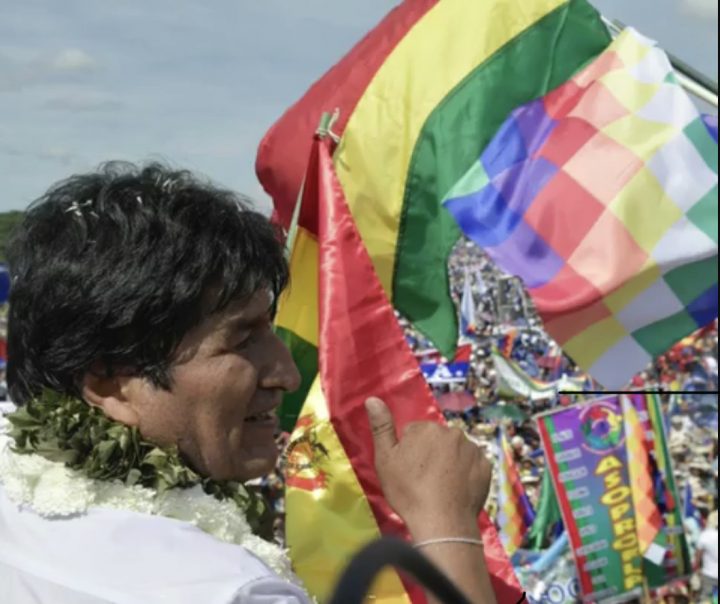Evo Morales has been credited with turning his country around. From being the most impoverished in South America he managed to raise living standards, giving priority to education, health, pensions, the rights of the indigenous population and creating mouth watering growth indicators that were applauded even by the most neoliberal of publications. He did so by part nationalising natural resources in line with what most countries would consider reasonable.
However, those natural resources continue to be a point of attraction to the depredatory multinationals operating from the US and others, and not just the oil and gas but now that the world is turning green and more powerful batteries are needed to store renewables’ energy, Bolivia’s enormous lithium deposits are flashing like dollar signs in a cartoon. But that lithium has been forbidden fruit for the usual extractive businesses of the West under Morales who tried to arrange its exploitation by making his own alternative arrangements, e.g., with China.
Evo Morales has also made mistakes in government, like disregarding a referendum that denied him the right of a third reelection and perhaps justifying forests fires to support cattle breeders, but the balance of his regime has been a tremendous leap forward for Bolivia. This, and being of indigenous ethnicity proved unforgivable for the racist, right wing, Christian (the new opposition president taking over came with an oversize Bible and crucifix) neoliberal faction that has been plotting the coup d’etat that finally took place a few days ago.
The trigger was apparent irregularities found by the OAS (Organisation of American States) observers in the electoral process, to which Morales responded by calling fresh elections, to no avail as the coup was already in motion.
Analysis of the election process by some research bodies strongly appear to refute the OAS claim that the election was rigged. We present here some of their findings.
The Center for Economic and Policy Research (CEPR) in Washington produced a study: ‘What Happened in Bolivia’s 2019 Vote Count?: The role of the OAS electoral Observation Mission”
“This paper presents results from statistical analysis of election returns and tally sheets from Bolivia’s October 20 elections. This analysis finds no evidence that irregularities or fraud affected the official result that gave President Evo Morales a first-round victory. The paper presents a step-by-step breakdown of what happened with Bolivia’s vote counts (both the unofficial quick count, and the slower official count), seeking to dispel confusion over the process. The report includes the results of 500 simulations that show that Morales’s first-round victory was not just possible, but probable, based on the results of the initial 83.85 percent of votes in the quick count.”
The detailed PDF makes interesting reading as does the conclusion that “The politicization of what is normally an independent process of electoral monitoring seems inevitable when an organization that is entrusted with this monitoring — in this case the OAS — makes unsubstantiated claims that call into question the validity of an election count. This is a serious breach of the public trust, and even more dangerous in the context of the sharp political polarization and postelection political violence that has taken place in Bolivia. These unsubstantiated allegations should be retracted, and measures should be taken to insure the neutrality of electoral observation by the OAS in the future.”
For the more mathematically minded Professor Walter R. Mebane, Jr, Department of Political Science and Department of Statistics, Center for Political Studies, University of Michigan, produced his “Evidence Against Fraudulent Votes Being Decisive in the Bolivia 2019 Election” which reaches similar conclusions.
Protests against the right wing coup continue in Bolivia and Evo Morales has called from Mexico, where he has been offered asylum, for the end of violence and for calm to re-established. But the people already had a taste of the changes that can improve lives and they are not likely to accept the usual exploitation, discrimination and poverty they suffered in their long history of oppression without renewed activism.






